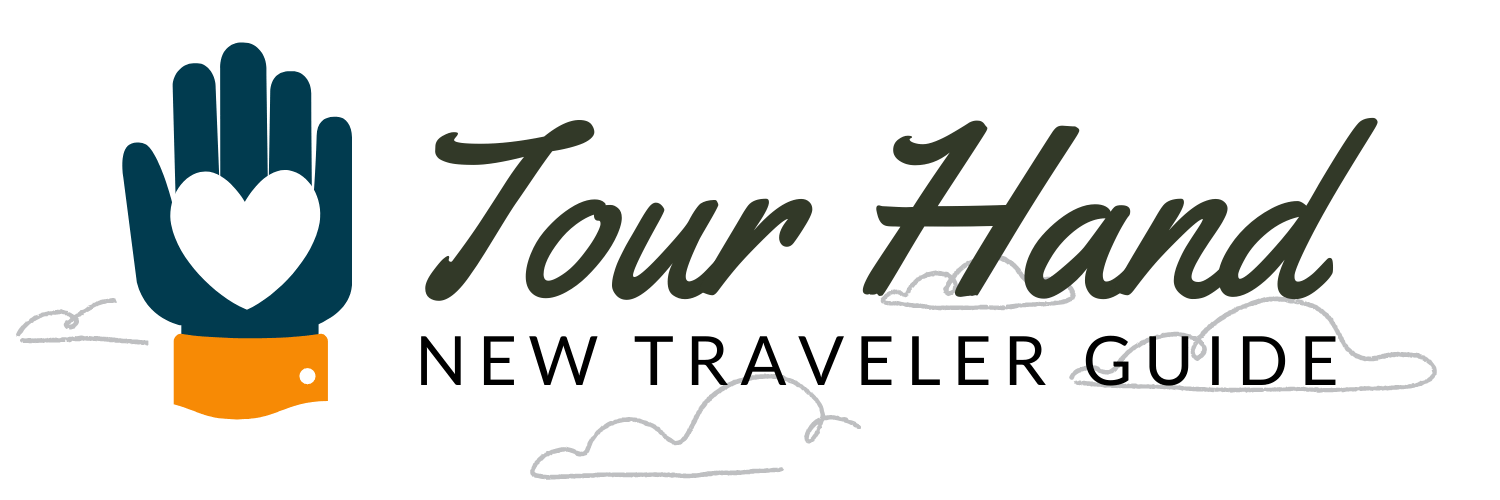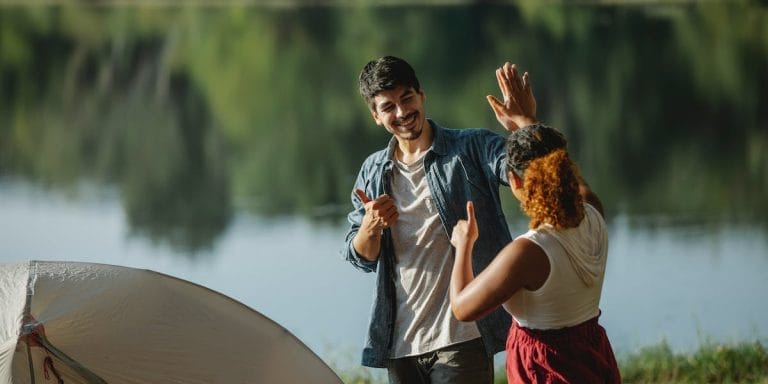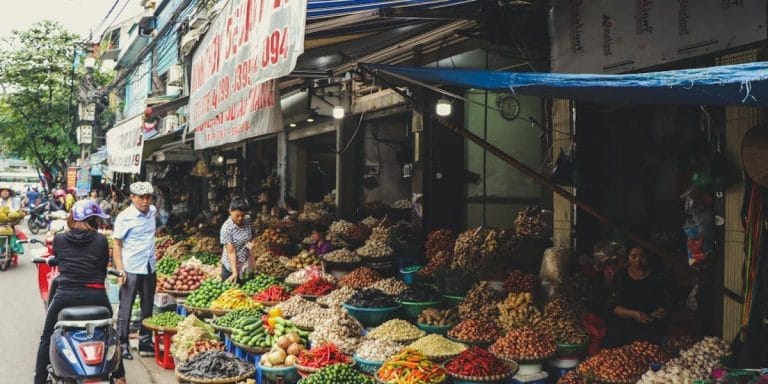Essential Safety and Health Tips for Traveling to Asia
Traveling to Asia countries is an exhilarating experience that offers a rich tapestry of cultures, breathtaking landscapes, and unforgettable adventures. However, it is essential to prioritize safety and health during your journey to ensure a smooth and enjoyable trip. With the increasing globalization and ease of travel, understanding the current significance and global impact of safety and health tips becomes crucial for every traveler.
Asia, with its diverse destinations and vibrant cities, attracts millions of tourists from around the world each year. While exploring this vast continent, it is important to be aware of the unique challenges and potential risks that may arise. By following essential safety and health tips, you can minimize the chances of encountering any unpleasant situations and make the most out of your trip.
One of the primary concerns when traveling to Asia is ensuring personal safety. While most Asian countries are generally safe for tourists, it is still advisable to take precautions and be vigilant. Familiarize yourself with the local laws, customs, and cultural norms of the country you plan to visit. This knowledge will help you navigate unfamiliar situations and avoid any unintentional misunderstandings.
Another crucial aspect to consider is maintaining good health throughout your journey. Asia is known for its delicious and diverse cuisine, but it is important to be cautious about the food and water you consume. Ensure that you drink only bottled water, avoid street food with questionable hygiene standards, and opt for well-cooked meals. Additionally, consult your healthcare provider before traveling to Asia to receive necessary vaccinations and medications based on the specific country you plan to visit.
Furthermore, it is essential to prioritize personal hygiene to prevent any potential health issues. Carry hand sanitizers, wet wipes, and tissues with you at all times, as access to clean washrooms and sanitation facilities may vary across different regions. Regularly washing your hands and practicing good hygiene habits will help protect you from common illnesses and infections.
In recent times, the global COVID-19 pandemic has added an extra layer of concern for travelers. It is crucial to stay updated on the latest travel advisories and guidelines provided by health authorities. Adhere to the recommended safety measures, such as wearing masks, practicing social distancing, and frequently sanitizing your hands, to protect yourself and others from the virus.
By being well-informed and prepared, you can ensure a safe and healthy journey while exploring the wonders of Asia. Remember to research your destination, pack necessary essentials, and remain adaptable to any unforeseen circumstances. With the right precautions in place, you can embark on an unforgettable adventure and create lasting memories in the captivating countries of Asia.

Embark on a Journey of Safety and Well-being in Asia
Imagine immersing yourself in the vibrant cultures, breathtaking landscapes, and unforgettable adventures that Asia has to offer. As you plan your trip, it’s crucial to prioritize safety and health to ensure a smooth and enjoyable experience. While exploring the diverse destinations of this vast continent, understanding the unique challenges and potential risks becomes essential. By following essential safety and health tips, you can minimize any unpleasant situations and make the most out of your journey.
One of the primary concerns when traveling to Asia is ensuring personal safety. While most Asian countries are generally safe for tourists, it’s still advisable to take precautions and be vigilant. Familiarize yourself with local laws, customs, and cultural norms to navigate unfamiliar situations smoothly. Understanding these aspects will help you avoid any unintentional misunderstandings and ensure a harmonious experience.
Another crucial aspect to consider is maintaining good health throughout your journey. Asia is renowned for its delicious and diverse cuisine, but it’s important to be cautious about the food and water you consume. Opt for bottled water, avoid street food with questionable hygiene standards, and choose well-cooked meals. Consulting your healthcare provider before traveling to Asia is also essential to receive necessary vaccinations and medications based on your specific destination.
Furthermore, prioritizing personal hygiene is key to preventing potential health issues. Carry hand sanitizers, wet wipes, and tissues with you at all times, as access to clean washrooms and sanitation facilities may vary across different regions. Regularly washing your hands and practicing good hygiene habits will protect you from common illnesses and infections.
In recent times, the global COVID-19 pandemic has added an extra layer of concern for travelers. Staying updated on the latest travel advisories and guidelines provided by health authorities is crucial. Adhering to recommended safety measures, such as wearing masks, practicing social distancing, and frequently sanitizing your hands, will help protect yourself and others from the virus.
By being well-informed and prepared, you can ensure a safe and healthy journey while exploring the wonders of Asia. Research your destination, pack necessary essentials, and remain adaptable to any unforeseen circumstances. Understanding the significance of safety and health tips is vital for every traveler, and it forms the basis for a successful and enjoyable experience. So, delve into the research and embark on your adventure armed with knowledge and preparedness.

Safety and Health Tips
When it comes to safety and health, it is important to prioritize prevention and preparedness. By following some key tips, you can ensure a safer and healthier lifestyle.
1. Stay Active
Regular physical activity is essential for maintaining good health. Engaging in activities such as walking, jogging, or cycling can improve cardiovascular fitness, strengthen muscles, and boost overall well-being. Remember to warm up before exercising and cool down afterwards to prevent injuries.
2. Eat a Balanced Diet
A well-balanced diet is crucial for providing the body with essential nutrients. Include a variety of fruits, vegetables, whole grains, lean proteins, and healthy fats in your meals. Limit the consumption of processed foods, sugary snacks, and beverages high in added sugars.
3. Practice Good Hygiene
Proper hygiene habits can help prevent the spread of germs and reduce the risk of illnesses. Wash your hands frequently with soap and water for at least 20 seconds, especially before eating or after using the restroom. Cover your mouth and nose with a tissue or your elbow when coughing or sneezing.
4. Get Enough Sleep
Adequate sleep is essential for overall well-being and cognitive function. Aim for 7-9 hours of quality sleep each night. Establish a regular sleep schedule, create a comfortable sleep environment, and avoid stimulating activities before bedtime to improve sleep quality.
5. Stay Hydrated
Drinking enough water is crucial for maintaining proper bodily functions. Aim to drink at least 8 glasses of water per day, or more if you engage in physical activity or live in a hot climate. Carry a reusable water bottle with you to stay hydrated throughout the day.
6. Practice Safe Driving
When driving, always prioritize safety. Obey traffic rules, wear your seatbelt, and avoid distractions such as texting or talking on the phone. Be aware of your surroundings, maintain a safe distance from other vehicles, and never drive under the influence of alcohol or drugs.
7. Protect Your Skin
Protecting your skin from harmful UV rays is crucial to prevent skin damage and reduce the risk of skin cancer. Apply sunscreen with a high SPF before going outdoors, wear protective clothing, and seek shade during the hottest hours of the day.
8. Manage Stress
Chronic stress can negatively impact both physical and mental health. Find healthy ways to manage stress, such as practicing relaxation techniques, engaging in hobbies, or seeking support from loved ones. Take breaks when needed and prioritize self-care.
9. Stay Informed
Stay updated on the latest safety and health information. Follow reliable sources such as government health agencies or reputable medical websites. Stay informed about potential hazards in your environment and take necessary precautions to protect yourself and others.
10. Seek Professional Help
If you have any health concerns or experience persistent symptoms, it is important to seek professional help. Consult a healthcare provider for proper diagnosis, treatment, and advice tailored to your specific needs.

11. Prioritize Mental Health
Maintaining good mental health is just as important as physical health. Take time to relax and engage in activities that bring you joy. Practice mindfulness or meditation to reduce stress and improve overall well-being. Seek professional help if you are struggling with your mental health.
12. Practice Safe Sex
Protecting yourself and your partner from sexually transmitted infections is crucial. Always use condoms and get regular check-ups to ensure your sexual health. Have open and honest communication with your partner about sexual boundaries and consent.
13. Maintain a Clean Environment
A clean and organized living space can contribute to better health. Regularly clean and disinfect frequently touched surfaces to prevent the spread of germs. Keep your home well-ventilated to improve air quality. Dispose of waste properly and recycle whenever possible.
14. Practice Sun Safety
In addition to sunscreen, wear protective clothing such as hats and sunglasses to shield yourself from harmful UV rays. Avoid prolonged sun exposure, especially during peak hours. Regularly check your skin for any changes or abnormalities and consult a dermatologist if needed.
15. Stay Socially Connected
Maintaining social connections is important for mental and emotional well-being. Engage in activities with friends and family, join clubs or organizations, or participate in community events. Reach out to loved ones regularly and seek support when needed.
16. Practice Fire Safety
Prevent fire hazards by installing smoke detectors in your home and checking them regularly. Create an emergency plan and ensure everyone in your household knows what to do in case of a fire. Keep fire extinguishers easily accessible and have them regularly inspected.
17. Practice Proper Lifting Techniques
When lifting heavy objects, use proper techniques to prevent injuries. Bend your knees, keep your back straight, and lift with your legs. Avoid twisting or jerking motions while lifting. If an object is too heavy, ask for help or use equipment such as dollies or carts.
18. Take Breaks from Screens
Excessive screen time can strain your eyes and negatively impact your posture. Take regular breaks from screens, especially when working or studying for long periods. Practice the 20-20-20 rule: every 20 minutes, look at something 20 feet away for 20 seconds to reduce eye strain.
19. Practice Safe Internet Habits
Protect your online safety and privacy by using strong, unique passwords for your accounts. Be cautious when sharing personal information online and avoid clicking on suspicious links or downloading unknown files. Regularly update your devices’ software and use antivirus software for added protection.
20. Be Prepared for Emergencies
Have an emergency kit stocked with essential supplies such as food, water, medications, and first aid items. Create a communication plan with your family or household members in case of emergencies. Stay informed about local emergency protocols and know how to respond in different situations.

It is also important to have a well-stocked emergency kit that includes essential supplies such as food, water, medications, and first aid items. This kit should be easily accessible and regularly checked to ensure everything is up to date. Additionally, it is crucial to establish a communication plan with your family or household members, designating a meeting point in case you get separated during an emergency. Being aware of the potential hazards in your area, such as natural disasters or industrial accidents, can also help you better prepare and respond effectively. Remember, being proactive and prepared can greatly increase your chances of staying safe during emergencies.

Case Study 1: Workplace Safety
In a manufacturing plant, a worker named John was operating a heavy machinery without wearing the appropriate safety gear. As a result, he accidentally injured his hand when it got caught in the machine. This incident could have been prevented if John had followed the safety protocols and worn the required protective equipment.
Case Study 2: Fire Safety
In a residential building, a fire broke out due to an electrical short circuit. The residents were able to safely evacuate the building because they had regularly participated in fire drills and were aware of the emergency exits. The fire department was able to quickly extinguish the fire, preventing any casualties. This case highlights the importance of fire safety measures and preparedness.
Case Study 3: Road Safety
Mark, a young driver, was texting on his phone while driving. As a result, he lost control of his vehicle and collided with another car, causing severe injuries to both drivers. This accident could have been avoided if Mark had prioritized road safety and refrained from using his phone while driving. It serves as a reminder of the dangers of distracted driving.
Case Study 4: Food Safety
In a restaurant, several customers fell ill after consuming contaminated food. Upon investigation, it was discovered that the restaurant staff had not followed proper hygiene practices while handling and preparing the food. This case emphasizes the importance of maintaining strict food safety standards to prevent foodborne illnesses.
Understanding the Cases
These real-world examples demonstrate the significance of safety and health tips in various contexts, such as workplace, fire, road, and food safety. By following proper protocols and being prepared, individuals can minimize the risks and ensure their well-being.

Safety and health tips play a crucial role in ensuring the well-being of individuals in various aspects of life. However, there are several challenges that need to be addressed in order to promote and implement these tips effectively. One challenge is the lack of awareness and knowledge among individuals regarding safety protocols and preventive measures. This can be addressed through educational campaigns and training programs that aim to increase awareness and understanding.
Another challenge is the resistance or negligence of individuals to follow safety guidelines. This can be due to various reasons such as complacency, lack of enforcement, or a misconception that accidents will not happen to them. Overcoming this challenge requires a collective effort from both individuals and organizations to create a culture of safety and accountability.
Furthermore, the advancement of technology brings new challenges and possibilities in the realm of safety and health. For example, distracted driving has become a major concern with the widespread use of smartphones. However, technology can also be utilized to develop innovative solutions such as hands-free devices or apps that promote safe driving practices.
In the future, it is essential to continue investing in research and development to improve safety measures and develop new technologies that can enhance safety in various domains. Additionally, collaboration between government agencies, organizations, and individuals is crucial to establish and enforce safety regulations effectively.
Overall, safety and health tips are essential for preventing accidents and promoting well-being. By addressing the challenges and embracing future possibilities, we can create a safer and healthier environment for everyone.
Traveling is an exciting adventure, but it’s important to prioritize safety and health during your trip. Here are some key points to keep in mind:
1. Research your destination: Before you go, gather information about the local customs, laws, and potential health risks of your destination. This will help you stay prepared and make informed decisions.
2. Pack a first aid kit: Include essential items like band-aids, pain relievers, antiseptic wipes, and any necessary prescription medications. It’s better to be prepared for minor injuries or illnesses.
3. Stay hydrated: Drink plenty of water, especially in hot climates or during physical activities. Dehydration can lead to fatigue, dizziness, and other health issues.
4. Practice good hygiene: Wash your hands frequently with soap and water, or use hand sanitizer when necessary. This helps prevent the spread of germs and reduces the risk of getting sick.
5. Protect yourself from the sun: Apply sunscreen with a high SPF, wear a hat and sunglasses, and seek shade during the hottest hours of the day. Sunburns and heatstroke can ruin your trip.
6. Be cautious with food and water: Avoid street food or uncooked dishes that may not be properly prepared. Drink bottled water or use water purification methods to prevent stomach issues.
7. Stay aware of your surroundings: Be mindful of your belongings and avoid displaying expensive items. Stay in well-lit areas, especially at night, and trust your instincts if something feels off.
8. Stay connected: Share your travel plans with someone you trust and keep them updated regularly. Have a reliable means of communication, such as a fully charged phone or a local SIM card.
9. Respect local customs: Familiarize yourself with the local customs, traditions, and laws of your destination. Show respect to the local culture and avoid any actions that may be considered offensive or disrespectful.
10. Stay informed about health alerts: Check for any travel advisories or health alerts related to your destination. Stay updated on vaccinations, required medications, and any potential disease outbreaks.
Remember, safety and health should always be a priority when traveling. By following these tips and staying informed, you can have a memorable and enjoyable trip while minimizing potential risks.








